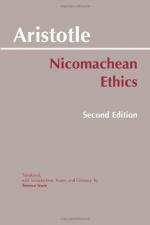|
This section contains 8,611 words (approx. 29 pages at 300 words per page) |

|
SOURCE: “Spinoza on the Power and Eternity of the Intellect,” in Supplementum Festivum: Studies in Honor of Paul Oskar Kristeller, edited by James Hankins, John Monfasani, and Frederick Purnell, Jr., Medieval & Renaissance Texts & Studies, 1987, pp. 589-610.
In the following essay, Mark demonstrates how Spinoza's Ethics unifies his theories of knowledge, the emotions, and action.
In the first three parts of the Ethics, Spinoza offers a systematic metaphysics, epistemology and psychology. This was required, he believed, as a foundation; a general understanding of the world and of human nature must provide a context before specifically ethical topics—the aim, after all, of the Ethics—can be intelligibly discussed. Finally, in Parts IV and V, Spinoza turns to ethics proper.
But there is an important difference in approach between the two parts. In Part IV, Spinoza emphasizes the limitations on human power and freedom. Such control as knowledge offers over...
|
This section contains 8,611 words (approx. 29 pages at 300 words per page) |

|


